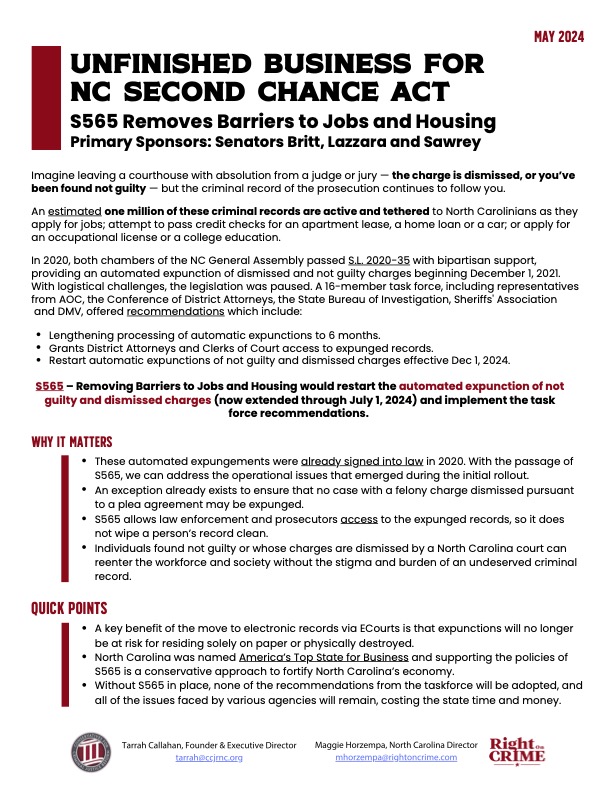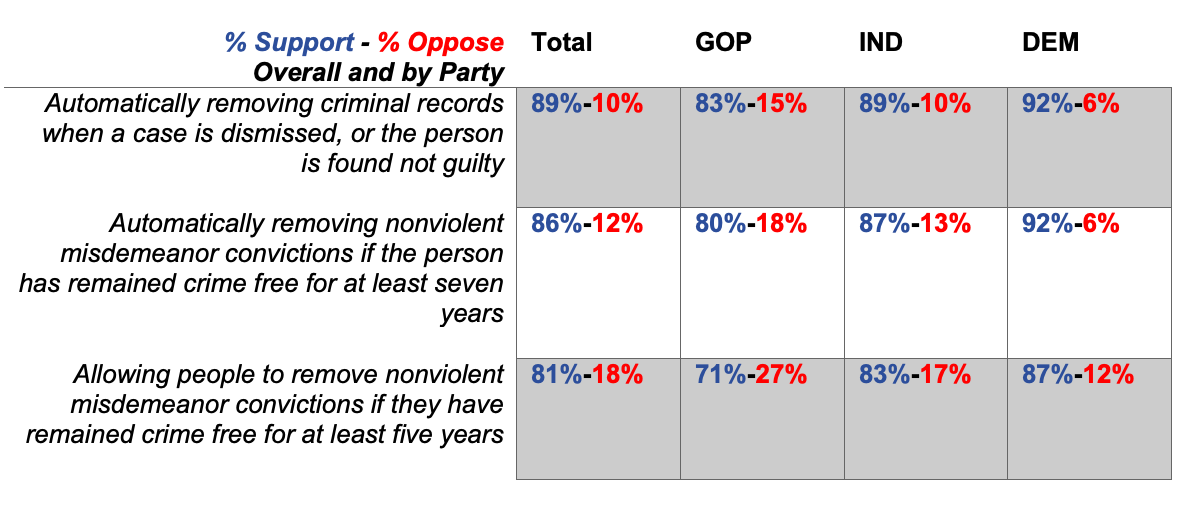Advancing Justice, Safety, and Opportunity:
A Win for North Carolina and Common-Sense Reform
Conservatives for Criminal Justice Initiative, 501(c)(4) established to advocate for pragmatic criminal justice reform announced exciting results from the November election:
This November, North Carolina voters delivered a powerful endorsement of principled leadership in criminal justice reform. Conservatives for Criminal Justice Initiative (CCJI) is proud to have highlighted the work of seven Republican legislators who champion policies that strengthen communities, prioritize safety, and expand opportunities for working families. CCJI’s ads spotlighted a shared commitment to solutions that unite public safety and fairness—and the results speak volumes.
Championing Reform
Senators Danny Britt, Michael Lee, and Lisa Barnes, alongside Representatives Alan Chesser, Tricia Cotham, Jarrod Lowery, and Erin Pare—are not only leaders in their districts but also trailblazers in advancing smart criminal justice policies. Their dedication reflects values that resonate deeply with North Carolinians:
- Expanding Opportunities: Supporting reforms that create second chances and open doors for individuals seeking to rebuild their lives.
- Strengthening Police-Community Partnerships: Collaborating with law enforcement to ensure officers and communities work together in trust and safety.
- Standing with Working Families: Advocating for reforms that enable stability, opportunity, and growth for North Carolina’s hard-working residents.
A Resonating Message
In a competitive political landscape, CCJI’s ads garnered remarkable engagement. Our message cut through the noise, reaching voters across districts with a hopeful vision for justice and safety. From social media platforms to traditional media channels, our outreach emphasized pragmatic solutions over partisanship—because when justice works, everyone benefits.
Election Night Success
We’re thrilled to celebrate the victories of all seven of these legislators. North Carolinians have shown that they value leaders who prioritize both accountability and opportunity, recognizing that true safety comes from thriving, connected communities.
Looking Ahead
Looking forward, we’re more motivated than ever to continue advocating for policies that strengthen our justice system while preserving individual freedoms and public safety. We hope to build on this momentum by moving forward with a bolder set of solutions-driven policies in 2025-2026 and look forward to the opportunity to highlight the work of additional champions.
Thank you to everyone who supported this mission—and to the voters who entrusted these legislators to keep moving our state forward. Together, we’re proving that criminal justice reform is not just a possibility—it’s a promise.





